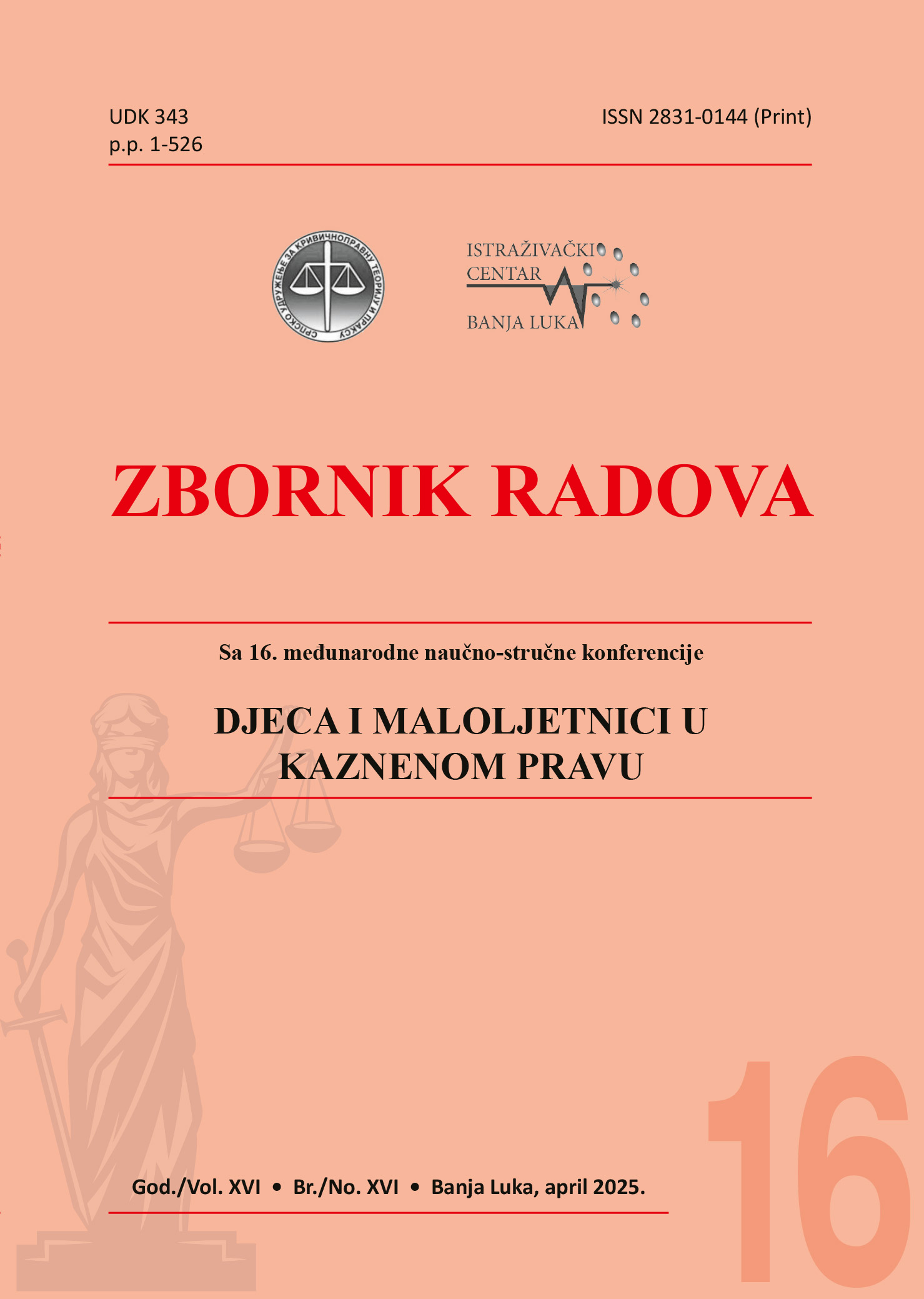EDUCATIONAL ORDERS AS A CRIMINAL-LEGAL MEASURE OF STATE REACTIONTO JUVENILE DELINQUIRY (EXPERIENCE OF IMPLEMENTATION IN THE PREMISES OF THE HIGHER COURT IN ŠAPC)
DOI:
https://doi.org/10.7251/CEST1625256BKeywords:
juvenile criminal law, juvenile, educational orders, juvenile delinquency, non-institutional measuresAbstract
There are numerous innovations introduced by the Law on Juvenile Offenders and Criminal-Legal Protection of Minors of the Republic of Serbia from 2005. One of the most important is the legalization of educational orders as special and, above all, specific criminal-law measures of reaction to juvenile delinquency of an extra-institutional nature. The legalization of this category of criminal law measures of reaction to juvenile delinquency is the result of the legislator's completely correct position that non-institutional measures and sanctions in general, and thus also educational orders, should be the basic instruments of reaction to juvenile perpetrators of criminal acts. However, despite the full justification of this position of the legislator on this issue, when it comes to educational orders, it has still not been implemented in practice to the desired extent. Not only do we have an unjustifiably small number of applied educational orders, but there is also stagnation in their application. Among the reasons for such a high and, above all, unjustified gap between the norm and its application, two stand out in particular. The first is that we still do not have a sufficient level of awareness among those who decide on the application of educational orders of their importance as an instrument of reaction to juvenile delinquency; The second is the incompleteness of the normative framework for the application of educational orders.
